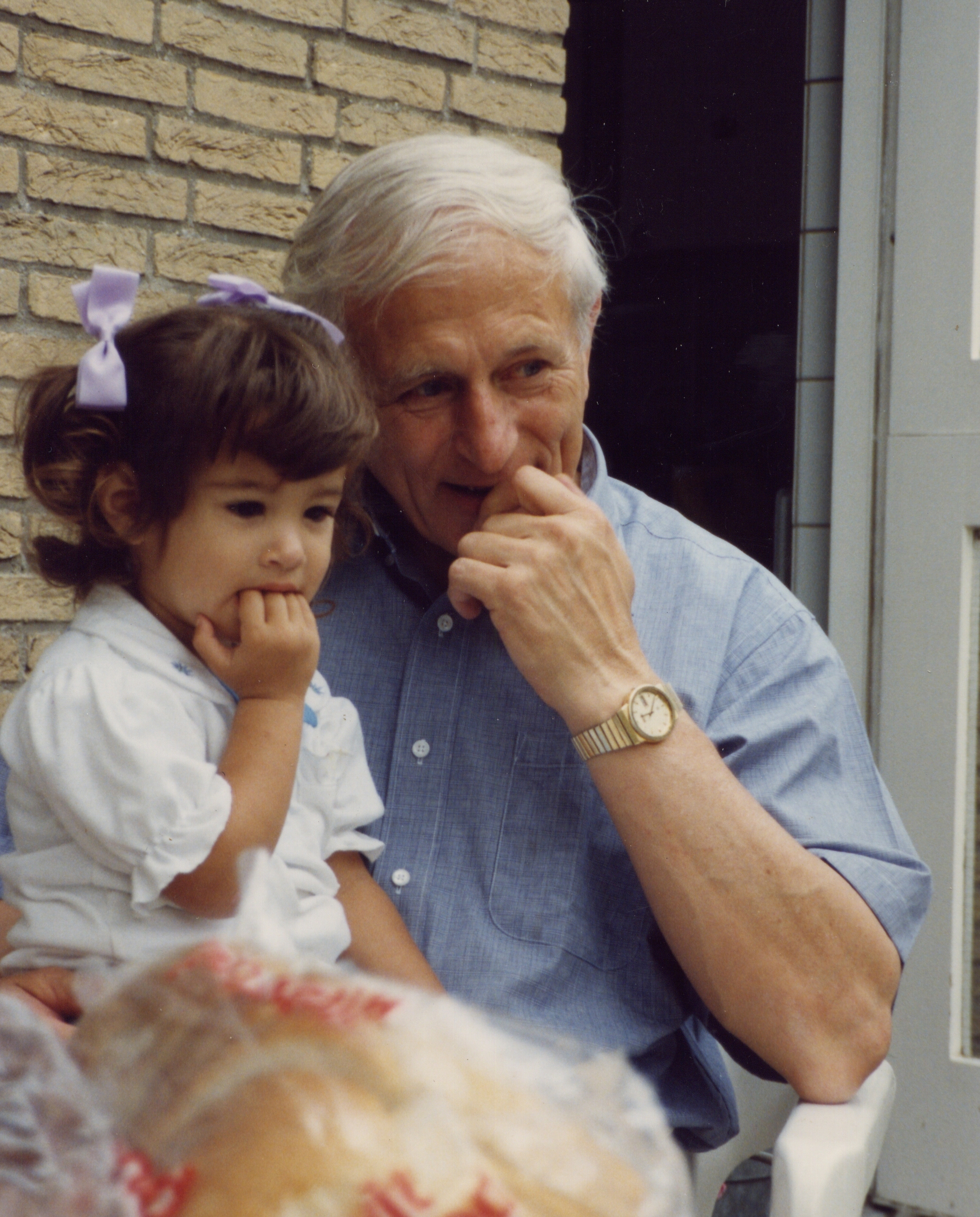TRANSCRIPTION
How would you describe your economic status and life growing up?
My life began in the Lange Boone Street, number seventeen in Maassluis. All my brothers and sisters older than I were born in one of the houses of the Flower Almshouses (Bloemhofjes). Of these flower-filled courtyards there were three of them. They were owned by my paternal grandfather. The household of my grandfather was large. From stories about him I understand that the man was not easygoing for himself and also not for his family. Everybody had to work for the small community. That is, income had to be generated to maintain a decent degree of prosperity. At that time there were no social safety nets except those that were provided by the church. Using these provisions was in fact a disgrace and a nightmare at the same time. Rather die than anything else. It is with this background one can understand that the head of the small community, my grandfather, acted as a kind of dictator.
What level of schooling have you received?
I went to elementary school, advanced school to learn languages, more advanced school to learn math physics and chemistry, after that I studied chemistry to become an chemical analyst and working as such in a number of laboratories. Finally I started to join the university to study physics until I got my MSC while working at the same time for the first two years.
Looking back what do you remember about school or the school system?
At about the age of four I went to kindergarten. The school was in the Korte Boone Street, a side street of the Lange Boone Street. The school's construction was quite simple, but the teacher was nice. Why do I say that? Well, she was young and joyful and she always played games with the children, and on Wednesdays after school time at about twelve o'clock I always went home.
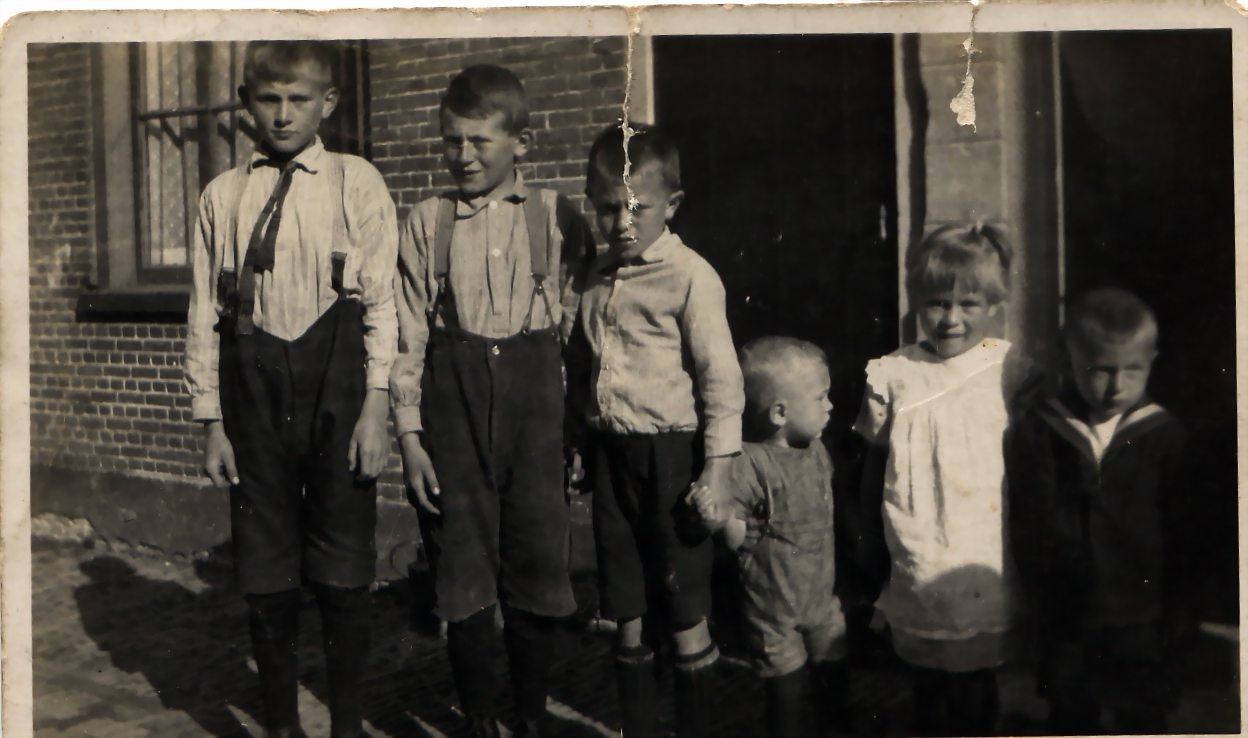
What type of lighting did you have when you were younger (electricity, candle, oil lamps)?
My parents were very reasonable people who taught me in their way many good things I think now that my mother had a research mentality. One case comes to mind. There was something with the oil lamp with which she was busy when my father made a comment in the way of "Oh woman it is clear you are not able to do this". But she solved the problem quickly. I could not help commenting on my mother's behalf in front of my father to give her a compliment in the sense of "she can do more than you think". Hearing the word oil lamp I have to make a note that at that time lighting took place with an oil lamp or with a gas lamp. In our house we had oil lamp lighting as the majority of the people. In school we had gas lamp lighting. In the street it was the same as in school. We had gas lamps but they were called gas lanterns. At dusk a lantern lighter came along to light the lanterns. Apparently a watch flame was kept burning because with a long stick he managed to increase the gas flow to the so-called gas mantle by switching a lever high up in the lantern. That gas mantle was a woven mantle made of cotton soaked in a fluid containing a metal composition. Depending on the kind of metal the burning gas had a color white or soft white. He who has noticed a orange-yellow color of the burning gas in a gas burner, still used in households, knows that it comes from sodium (from sodium chloride or kitchen salt). The metal used in the gas mantles of the gas lamps consisted of thorium/cerium oxide. At the high temperature of the gas flame the metal atoms start to emit light. What happens is that a conversion takes place of heat into visible light. Heat is also radiation. The eye does not see that radiation but a human body feels that radiation as warmth. It requires a deeper explanation to explain what happens inside the metal atoms with the electrons. When they arrive in a higher energy state and fall back in a lower energy state then the difference in energy is emitted as radiation that is light in ordinary talk. The burning gas still maintains the fabric of the wick.
Do you ever have problems sleeping at night?
Sleep badly and during the time between sleep and start dreaming thoughts or rather memories come to my mind. Not just pleasant memories but also unpleasant thoughts. What did I do wrong in the past and sometimes what did I do well. But this is infrequent.
Are there any WW2 instances that you witnessed?
What did I witness? The war began around early May 1940. I attended the HBS-? school (comparable to Senior High) in Vlaardingen a town 45 minutes by bike from Maassluis. I must have been about 18 years old. The war was unavoidable. That was evident Hitler was on war path. He was successful in the occupation of Austria, preceded by the occupation of the Ruhr area. Following the occupation of the Sudeten region and Czechoslovakia; the other countries of Western Europe were unwilling to go to war. Instead they tried to hold Hitler off from further expansion. In the Netherlands large areas of land had been inundated with the idea to stop the invasion it was exciting. War planes flew over the flooded land. If the Germans would have wanted, innumerable Dutch soldiers would have lost their lives. They stood together by the hundreds on the other side of the Grebbeline (the stretch of water). With a few bombs the Germans could have eliminated these Dutch soldiers. What did actually happen was that the center of Rotterdam was bombed and turned into a heap of rubble. In Maassluis we lived in a crow line about 25 km away from Rotterdam and from our attic window we saw white smoke rising in that direction without knowing what happened. We did not hear the explosion of the bombs. A day later the Netherlands capitulated. Family of mother's side, who lived in Rotterdam were bombed, but there were no casualties or injuries. Not many days later, Peter de Koning, a nephew, guided me through the destroyed part of Rotterdam. I have no recollection of feeling strong emotions at the sight of the devastation. You think more about the reconstruction. People who lost their homes apparently had to stay in shelters somewhere. At least, no one of the family asked us to stay with us in Maassluis.
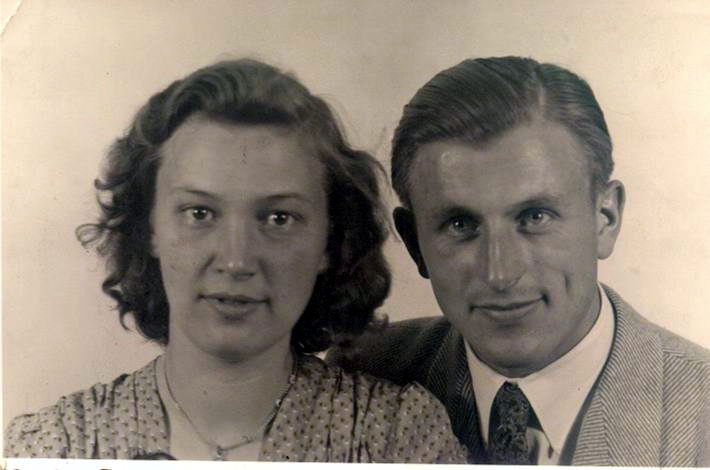
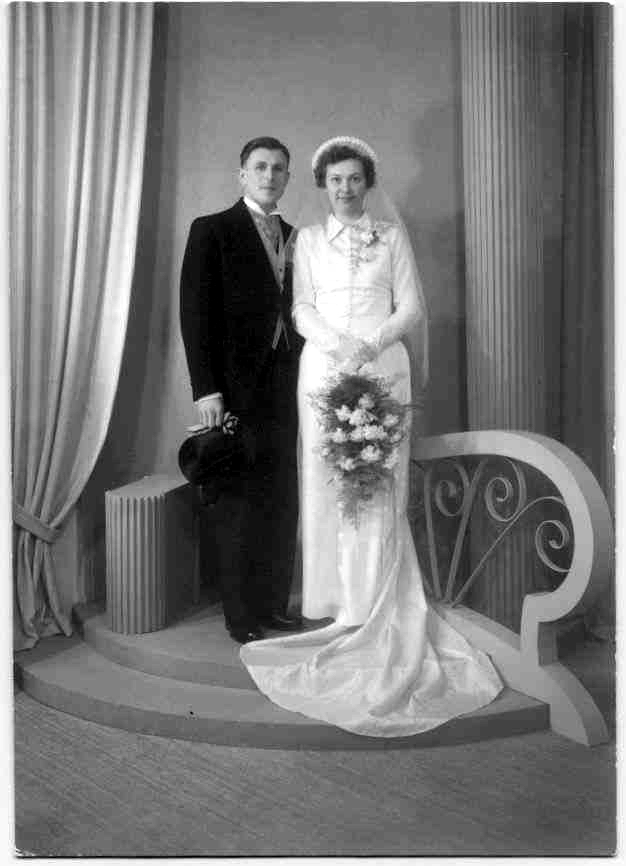
Did you ever have to worry about a scarce in food?
In the New Waterway a big ship had been bombed. Bales from Canada, because of an opening in the hull of the ship sacks of flour floated in the water with the result that the meal swelled and practically became impervious to water entering any further. The material of the bales consisted of jute. The only meal that was in contact with that material was wet. For the rest the meal was very dry and was ready for consumption. These bags washed up on land along the river, the Maaskant as it was called in Maassluis. How this could have happened I did not know but it did so. My father and I and friends, who had a truck, loaded it with a number of bales. At home the dry flour was stored in pillow cases and saved in a dry place. During two years of war we could use it as a supplement to our food. I saw to that as long as possible we could do so. But the war lasted longer and especially towards the end we had to deal with a food pinch. On one day a vehicle passed through the street loaded with big wine prunes. They were big as I have not seen them before or after since that time. They were delicious and cost practically nothing. I thought if the war brought something with it like that then life is worth living. It was also dangerous In Zeeland a boy stole something from a military German vehicle. The soldier who caught him shot him dead on the spot.
Did you ever donate food to help others?
My mother did last year of the Second World War everyone was really hungry because of the scarcity of food she gave a bag of beans to a woman who told her that she had nothing to eat. And it was the last food for us. I became angry but on the other hand I knew that it was from her good heart that she had done it.
What is your religious preference?
For a while protestant, but later on I did not confess to any religion though I had and still have an opinion about religion altogether. I am not tolerant about any religion that fanatics threaten people because of their belief. It happened in the past in a most cruel way and it continues at the moment in an awful way. At the age of 82 my father passed away from a heart attack during church of the midst of singing. Although I did not witness this tragedy my sister Mijini did.
Did any incident ever personally happen to you?
In our everyday life hardly anything happened, but yet again afterwards very much. One of my brothers, Joop, went to work in the 'Arbeits Dienst' (Labor Service). He occasionally came home, his house in the Dam Street where his wife Mary and their daughter Willie lived. To distract her a little, I took my books from school to her home to do my homework. Willie was a cheerful girl and was always smiling. It happened one night when I returned home from Mary's house that Rudolf Hess, the second man after Adolf Hitler flew to England at his own initiative to talk peace with the British about a truce He rightly saw that at the end Germany would suffer defeat The Dutch got excited by the news. At the entrance of the harbor were people as usual who watched a German Navy boat trying to enter the port without much success because of the heavy stream of the river, well accompanied by clashes with one side of the harbor. Those results prompted the shore people to applaud, something the commander of the ship did not like. The commander of the boat alerted the German police in Maassluis They took 21 young male prisoners who were immediately transported to Auswitz, a notorious concentration camp. Of what had happened at the harbor I was not aware when in the evening after visiting Mary I returned home where I had to pass along a post of the Grüne Polizei on the Zuidvliet. There were always three police men on duty. In passing, I nodded in their direction. That was the signal for them to storm to me with a bayonet on their rifle and started to beat me in a professional way threatening me with their icy bayonets which came close to my belly with horror I screamed that I wanted to speak to the commander. It fitted me well that I knew enough German and so I saw the commander. Fortunately, he responded quietly and I could tell him that I returned home from a visit to my brother's wife and that my brother had to work in Germany. He was also interested in the textbooks in my bag. After a while and a more or less pleasant talk he gave one of the police forces the order to let me go. When leaving I looked suspiciously back whether he would kick me at the end that did not happen. Afterwards I was relieved that I had not been sent to Auswitz. Even in the middle of the war, a certain Peter (I forgot his surname); a friend of Piet Tuitel came back from Auswitz. He had been released because he suffered tuberculosis. He told me grizzly facts of his time in that camp.
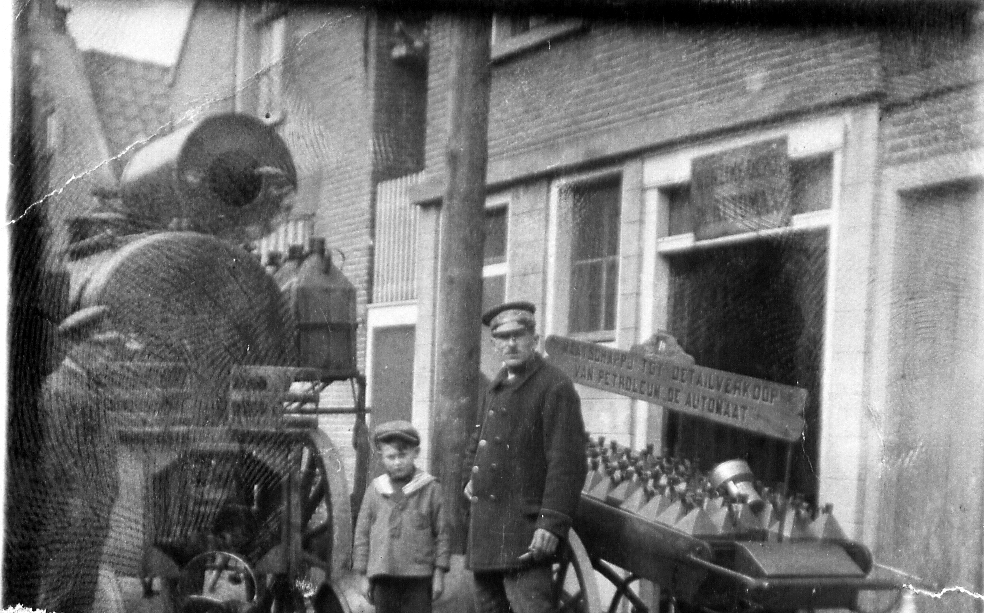
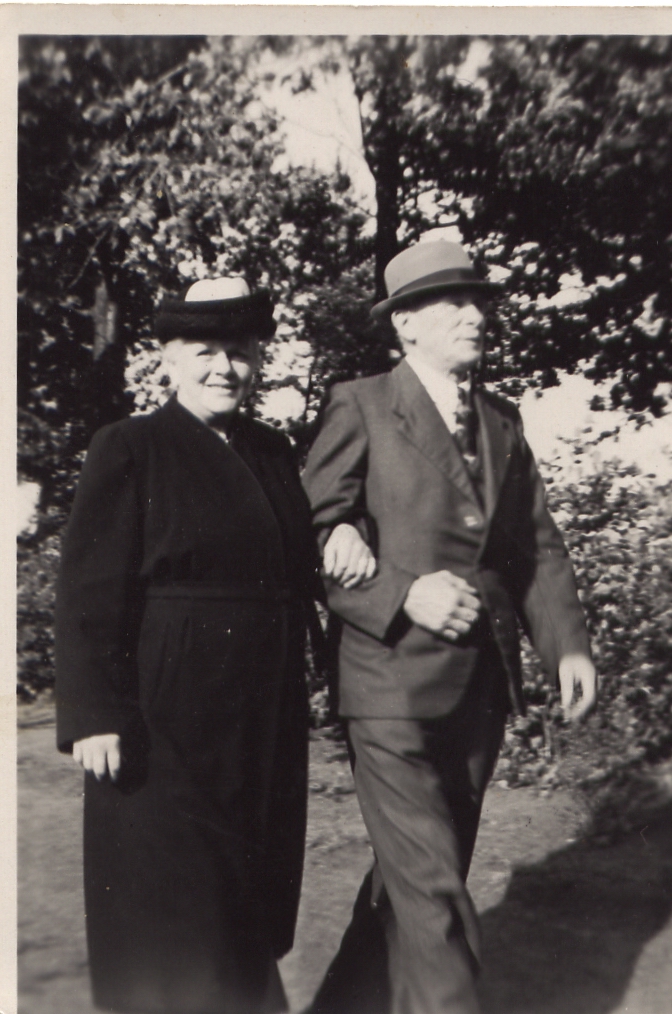
What played a key factor in deciding you wanted to be a Petroleum Engineer?
Shell had a research institute with a very good reputation of one of the best. At a young age I told myself that would be the facility where I was going to work. And so it became. After a period of research (about twenty years) I got an assignment to work in the field as a petroleum engineer in the Middle East and Venezuela until the time I got pensioned. Then I was free to work for other petroleum companies and finally as a consultant until I stopped at an age of 80. It was enough though sometimes I regret having to stop.
How did your parents end up meeting?
What I have heard is that my dad got my mother pregnant and had to marry my mother which was unavoidable at these times. When my mother was old she was nursed in a home for elder people. Once when i visited her we talked about the past and she told me that as a young girl she was in love with a nice guy who unfortunately drank too much alcohol. As she had seen the misery in other families with an alcoholic as a father she broke off her engagement though all her life she kept warm feelings for that guy.
How many siblings do you have?
There are a total of 13 siblings including myself. There were three sisters, Mijnie the second, Truus the seventh and Corrie the twelveth. There were 10 brothers (including me). Their names are: Izack, Cor, Gerrit, Joop, Arie, Wim, Koos,Teun, Mart, and Rien.
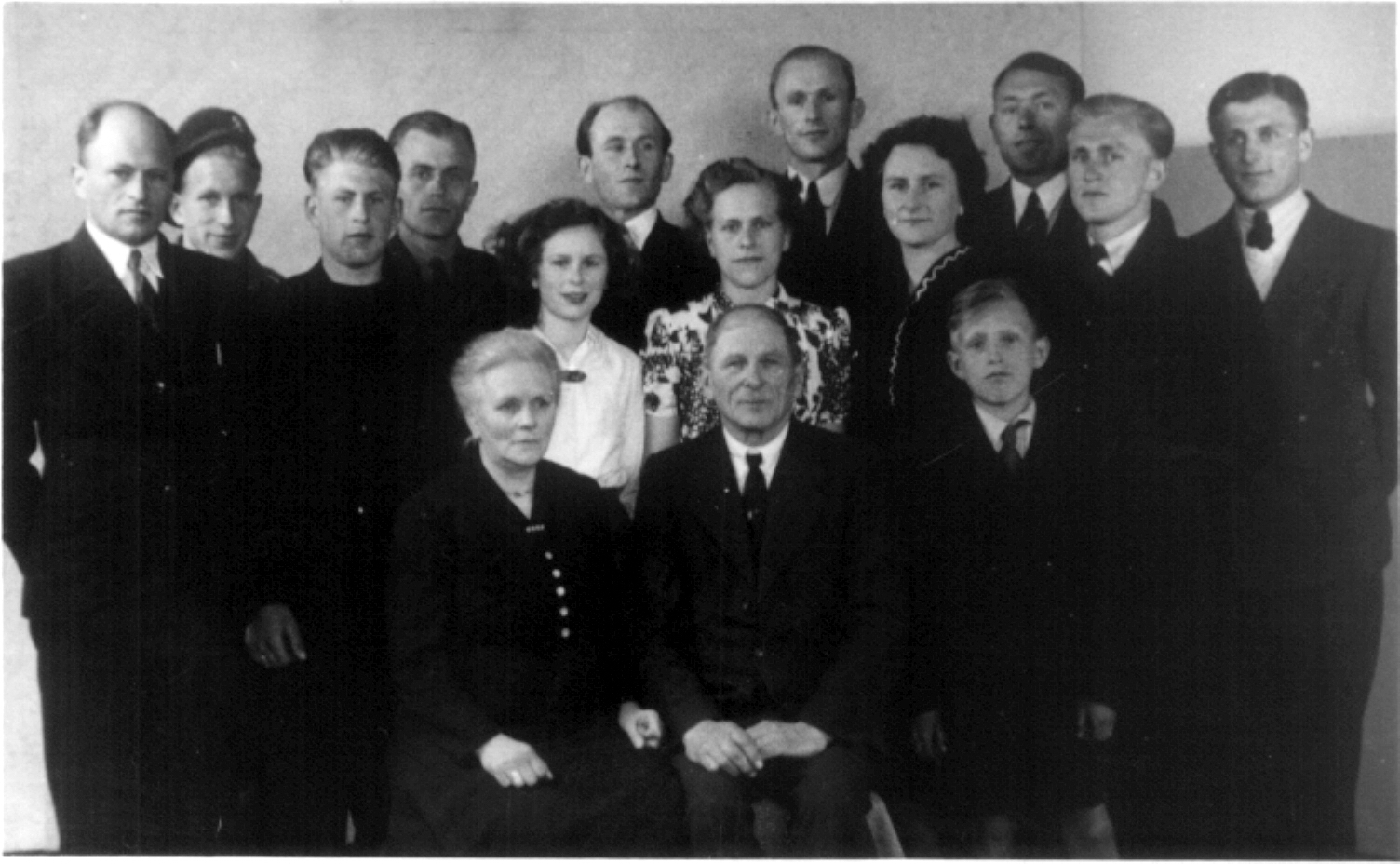
How many languages do you know?
English and Spanish quite well. German and French to the extent that I can read and write but to speak fluently I should practice them first in these countries for a couple of months first.
Where have you traveled to?
I traveled to many countries, Switzerland , France, Germany, England, Canada, Spain, Sweden, Ausralie, Singapore. I stayed a year in Qatar (Middle East), Venezuela for ten years, USA during a year apart from numerous visits.
How was the economy ?
From childhood on Europe was in a continuous recession with widespread unemployment and poverty. The ownly useful activity was studying to prepare for the time when the economy would get better. In Nazi Germany Hitler was elected president in 1933. Times got very bad for the Jewish population, first in Germany and after ocupation of almost the whole of Europe the majority of jews were being exterminated, called the Holocaust. That started around 1940 with the beginning of the second world war. Shortly later Hitler wanted to occupy Russia. He did not succeed fortunately. The invasion of the allied forces in Europe around 1944 together with the war with Russia in the East ended with the defeat of Germany and the beginning with the rebuild of destroyed Europe which took a long time of gradually picking up of the economy until a recurring recession in 2008 and still lasting up till the present.
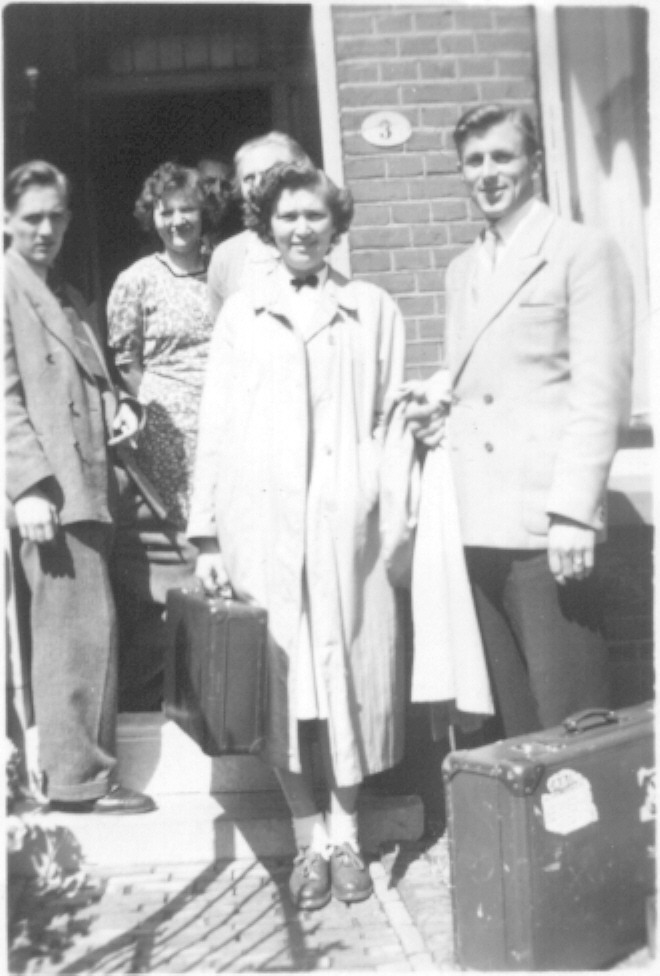
Is there anything else you would like to add to this interview?
That is enough questions for now.
